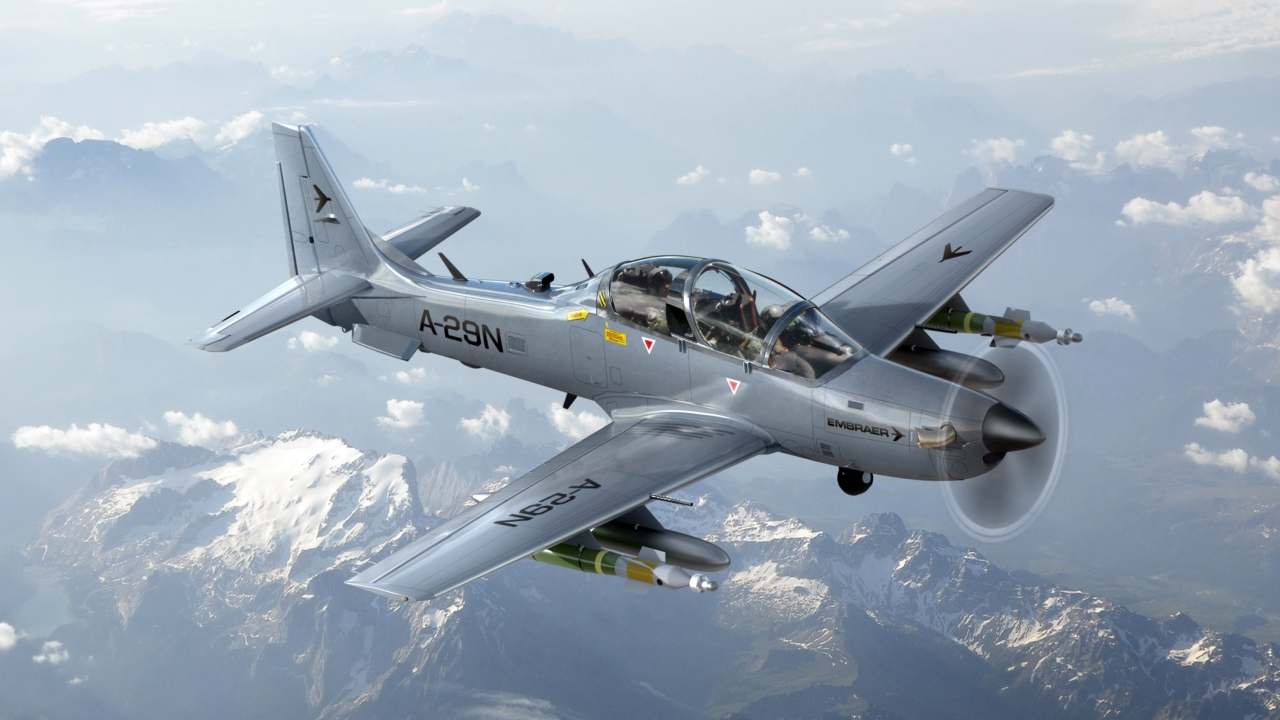Nigeria opts for Super Mushshaks
With the introduction of a new glass cockpit, the Super Mushshak has been unleashed with a new lease of life. As a result, the Pakistan Aeronautical Complex (PAC) Kamra, which builds the primary trainer, has won contracts with the air forces of Qatar and now Nigeria. Alan Warnes reports.

The deal to supply 10 Super Mushshaks to the Nigerian Air Force (NAF) was sealed on October 21, after the PAC Kamra chairman, Air Marshal Arshad Malik, travelled to Abuja, the country’s capital.
The contract includes operational training and technical support by the Pakistan Air Force (PAF). The PAC chairman said: “We are very happy with this latest sale but now we are looking at more markets.”
In a bid to fulfil the primary training requirements for new NAF pilots as soon as possible, Super Mushshaks, currently flying with the PAF, were being airfreighted to Nigeria as African Aerospace was going to press.
The plan is to replace them, within eight months, using brand new aircraft with glass cockpits and an enhanced environmental control system. Assembly of these aircraft is already under way at the PAC Kamra production plant.
The Super Mushshaks will be based at Kaduna, where the NAF’s Flying Training Command HQ is based, and are likely to serve the 301 Flying Training School, which has been flying the elderly DANA Air Beatle since 1995.
It was during a graduation ceremony at Kaduna for 10 young pilots, in June 2016, that NAF chief of air staff, Air Marshal Sadique Abubakar, first revealed the NAF had recently concluded the purchase of 10 new Super Mushshak aircraft from Pakistan to train future pilots.
A PAF spokesman commented at the time: “This contract will not only open new avenues for export of aviation equipment to foreign countries but also help in generating revenue for the country.”
Both the PAF and the NAF enjoy a good working relationship, with similar aircraft like the F-7 and C-130 serving the two countries.
As well as acquiring the Super Mushshak, the NAF is also planning to induct at least three JF-17s, with aspirations to purchase more. It is feasible that both sides could foster even closer relationships, with PAC overhauling NAF types already serving the PAF, although no one would comment on such possibilities.
The Super Mushshak was launched by the Aircraft Manufacturing Factory (AMF) in 1995, and made its first flight on August 15, 1996. Inside the cockpit, two pilots sit side-by-side, with the ability to fit a third seat. With unusual slightly swept forward wings, the Mushshak pilots get an excellent view both up and downwards, as well as an outstanding low speed and short take-off/landing capability.
With its six cylinder Textron Lycoming IO 540 V4A5 260hp (194kW) engine, the aircraft can operate at a cruising speed of 135 knots (250km/h). In a bid to boost interest and new sales, AMF integrated the new glass cockpit, allowing pilots an easier transition from this 70s-era training aircraft into a 21st century jet trainer with all its latest avionics.
PAC continues to invest in an aircraft it believes still has plenty to offer as a primary/elementary trainer, with two different versions of glass cockpit available, both by US companies – Dynon and Garmin. It first appeared in public with two multi-function displays, at the Dubai Airshow in November 2011.
More than 300 Mushshak/Super Mushshak piston trainer aircraft have been delivered around the world. Domestically, the Pakistan Army took 170 for military training and communication roles.
Pakistan’s allies have taken many too – Iran (25), Oman (8), Saudi Arabia (20), and Syria (6), while South Africa’s civil flying clubs have taken a small number as well. The figure is set to rise with the sales to Nigeria (10) and Qatar (eight).
The Primary Flying Training Wing at PAF Academy, Risalpur, has graduated pilots from all over the world since the Mushshak was inducted into service in the mid-70s. Pilots have come from countries such as Iran, Iraq, Kuwait, Saudi Arabia, Turkmenistan and Turkey, in addition to Pakistan.
Kuwait saw its first course of student pilots graduate from primary training on the Super Mushshak at Risalpur in early November 2016, as it looks to start training its own pilots again.
Meanwhile, PAC is not resting on recent Super Mushshak successes, and is believed to be in discussions with several other nations, including Turkey, the Maldives and African countries.
Stay up to date
Subscribe to the free Times Aerospace newsletter and receive the latest content every week. We'll never share your email address.

